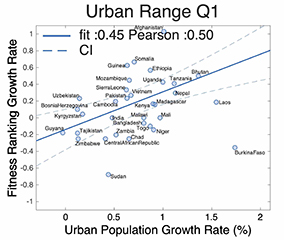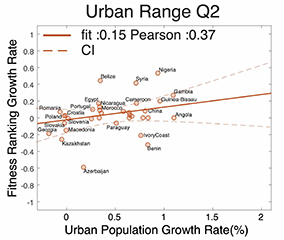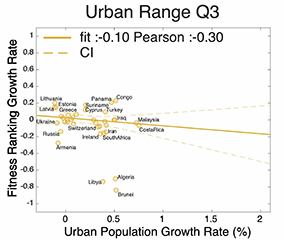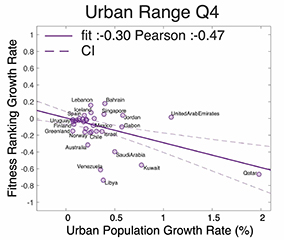Urbanization and Economic Complexity
Urbanization plays a crucial role in the economic development of every country. The mutual relationship between the urbanization of any country and its economic productive structure is far from being understood.
We analyzed the historical evolution of product exports for all countries using the World Trade Web (WTW) with respect to patterns of urbanization from 1995-2010. Using the evolving framework of economic complexity, we reveal that a country’s economic development in terms of its production and export of goods is interwoven with the urbanization process during the early stages of its economic development and growth.
Meanwhile in urbanized countries, the reciprocal relation between economic growth and urbanization fades away concerning its later stages, becoming negligible for countries highly dependent on the export of resources where urbanization is not linked to any structural economic transformation.
In this work, we couple the WTW data with the urbanization level of more than 146 countries worldwide and analyze this between 1995-2010 thus capturing the fingerprint of urbanization on countries' productive systems through the lens of their exports. We notice that in rural economies, the increase in urban population fosters structural changes in industrial exports.
It boosts the country's diversification improving the country's fitness and allowing the export of more complex products. These economic transformations fade away in countries that already have a high level of urban population (more than 60%) where there is no relation between the urbanization process and the country's fitness.
Within the sub-Saharan countries, we capture those where the virtuous circle between economic growth and urbanization is fostering structural changes in those countries' productive systems. On the other hand within countries with economies based on raw materials, we assess the implementation of policy leading to urbanization that does not support any structural transformations of their basket of exports.




